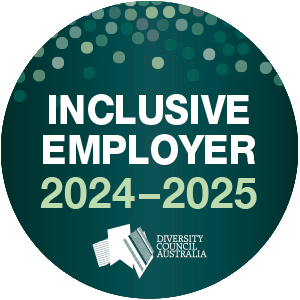21 February 2019
Among the myriad of experts and practitioners that will speak at this May’s Australasian Working Together to End Men’s Family Violence Conference, Desmond Campbell brings a potent blend of personal and professional expertise to his work to end men’s domestic and family violence.
A descendant of the Nglakan people of Ngukurr in south east Arnhem Land and Gurindji people of Kalkarindji, Desmond works for the Anti-Discrimination Commission, Northern Territory. There, he uses his early exposure to family violence growing up in Katherine and his understanding of what Aboriginal communities need, to inform domestic and family violence policy that’s led by the Aboriginal community for Aboriginal communities.
Desmond was drawn to the domestic and family violence (DFV) sector with a yearning to learn more about preventing violence in his own community. Through his work managing both government education and family violence prevention programs, Desmond “saw a gap between the workforce and policy makers’ understanding of the communities they were working with. I thought it would be a good opportunity to be a conduit between government and community” says Desmond.
Fittingly, Desmond will present on Boys as victims, men as prevention leaders; why it’s important for men to be part of the conversation to break the domestic violence cycle at day one of the conference.
“This cycle involves the perpetrator, the victim, children and the wider community” says Desmond.
“Understanding why men commit this violence provides opportunities to change their behaviours and breaks the cycle with the opportunity for building stronger, healthier families and communities that don’t have a generation of broken families and fathers, partners in prison and the continuation of generational trauma” he says.
“Accountability without a doubt is necessary. But partnering this up with strength-based programs that work with men to change, whilst ensuring women and children are safe, is the game changer and is where the cycle breaks” says Desmond.
Grassroots, community-run programs like the Darwin Indigenous Men’s Services (DIMS) are one such example of a strength-based program. DIMS provides an opportunity for Aboriginal men and other men to discuss domestic and family violence in a culturally safe space.
“A trained social worker and support staff are always available to provide the space as well as activities to the men” says Desmond.
“A 2-day cultural healing camping and fishing trip has been one of the most successful activities operated by DIMS. During this trip men are presented with DFV prevention education training so they can take this back to their families and communities to change the attitudes and believes around DFV” he says.
Desmond is currently working on the Gender Equity strategy for the NT Attorney-General and Justice Department. He’s excited about developing the policies and processes for people who might be experiencing sexual harassment or domestic and family violence in the workplace.
We’re just as excited to have Desmond speaking at the Australian Working Together to End Men’s Family Violence Conference on 22-23 May 2019 in Melbourne. See the full program of speakers and register your place here.








